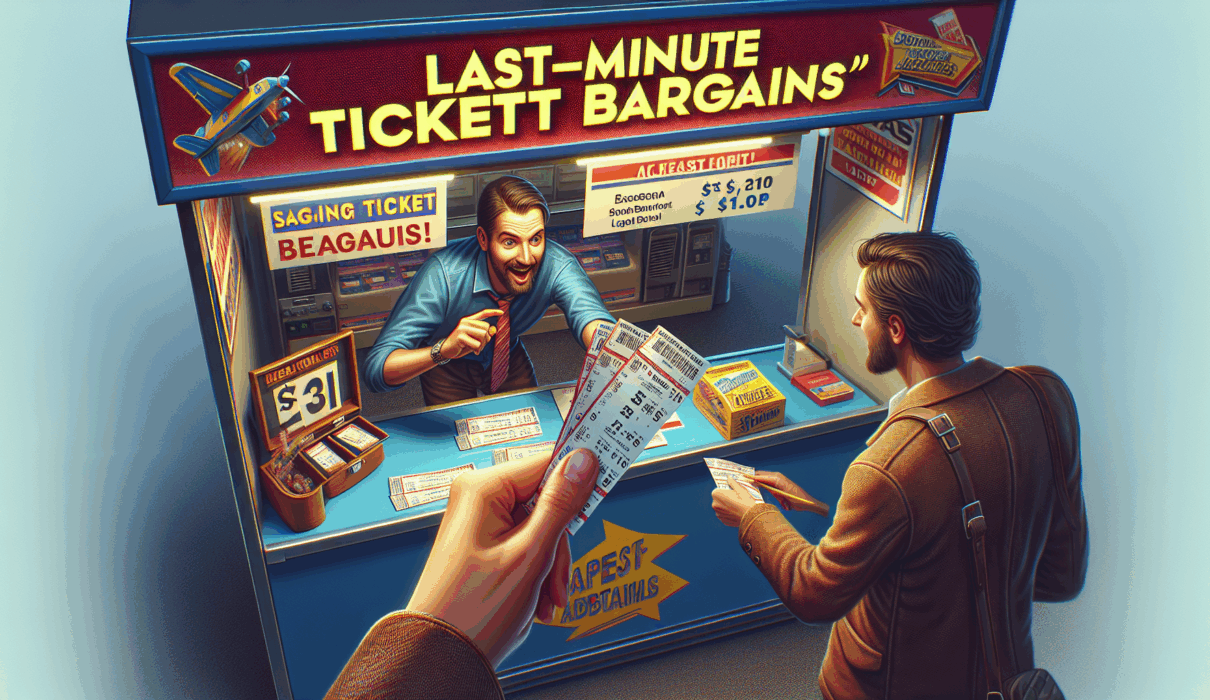Last-minute ticket bargains can save spontaneous planners considerable sums on concerts, sports events and theater performances. They can secure last-minute ticket bargains by understanding pricing dynamics, monitoring multiple sources and acting swiftly. This guide outlines strategies to find and compare late-stage offers without paying excess fees.
Understand price fluctuations
Ticket prices for events often change based on real-time demand and seat availability. Buyers who track these shifts gain a clearer view of when to strike.
Demand and supply
High demand pushes prices up, especially for headline acts or playoff games. Low demand can trigger discounts as sellers look to fill seats at short notice.
- Weekday shows often see softer demand than weekend performances
- Weather and local events can suppress attendance and reduce costs
- Last-minute cancellations by season-ticket holders may create sudden inventory
Event timing and seasonality
Major tours and championships tend to sell out weeks in advance, leaving fewer bargains at the eleventh hour. Smaller venues and off-peak seasons offer more flexibility.
- Concert residencies and local theater runs often release additional seats close to showtime
- Early-season sports matchups can generate lower secondary market prices than playoffs
Monitor ticket sources
Effective bargain hunting requires scanning both primary outlets and resale platforms. Each channel has distinct pricing structures and guarantees.
Official box offices
Box offices and venue websites sometimes release holdback tickets or last-minute returns with face-value pricing. Alerts via email or social media can signal these drops.
Verified resale sites
Resale marketplaces aggregate inventory from individual sellers. They may apply service and delivery fees, but guarantees such as buyer protection can justify the markup.
- StubHub, SeatGeek and Vivid Seats offer tiered fees based on seat price
- Some platforms allow filtering by total cost including fees
Leverage mobile notifications
Real-time alerts help buyers respond instantly when prices dip. Enabling push notifications ensures no opportunity slips by unnoticed.
Set price thresholds
Buyers can configure apps to notify them once listings fall below a target price. This automates the search and cuts down manual checking.
- Choose a realistic threshold based on venue capacity and event prestige
- Adjust alerts as inventory shifts to capture genuine bargains
Use multiple apps
Relying on a single source can miss deals. A mix of primary and secondary-market apps covers more ground.
- Ticketmaster app for official drops
- Seat alerts from resale services for mid-week bargains
Compare resale marketplaces
A side-by-side evaluation reveals which platforms offer the best combination of net cost and buyer protection.
| Platform | Fee structure | Buyer guarantee |
|---|---|---|
| StubHub | 10–15 percent | FanProtect Promise |
| SeatGeek | 5–20 percent | 100 percent refund |
| Vivid Seats | 10 percent flat | Buyer Guarantee |
Evaluate fee transparency
Some sites display fees upfront while others add them at checkout. Transparent fee models reduce unpleasant surprises when finalizing a purchase.
Act on last-minute deals
Timing and payment readiness can make or break a bargain hunt. Prepared buyers close sales while prices are still favorable.
Optimal purchase window
Prices often bottom out four to 24 hours before showtime. Beyond that, risk of sell-out increases and emergency markups can appear.
Streamline payment
Saving payment details in advance speeds up checkout. Buyers using digital wallets or saved credit cards complete transactions within seconds.
Manage fees and policies
Hidden charges and restrictive policies can erode the value of a bargain. Careful review prevents unexpected costs.
Refund and exchange terms
Resale tickets are typically final sale, but some platforms offer limited refunds if an event is canceled. Checking the fine print avoids dead-end transactions.
Delivery methods
Electronic tickets and mobile transfers usually incur lower fees than physical shipping. Opting for e-delivery reduces last-minute hassles.
Plan for backup options
Even with thorough preparation, some deals may fall through. Alternative plans ensure the night is still a success.
Alternative seat tiers
If premium sections sell out, lower-tier or obstructed-view seats may have last-minute price drops. Factor in view limitations against cost savings.
Virtual and hybrid experiences
Live streams and virtual watch parties can serve as substitutes when on-site tickets remain out of reach. These options often come with lower price points and flexible access.
Key takeaway strategies
- Track price swings across official and resale channels
- Set realistic alerts and use multiple apps
- Compare total costs including fees before committing
- Act swiftly within the optimal purchase window
- Review policies to avoid hidden charges and cancellations
By combining market insight with prompt action and contingency planning, spontaneous planners can access last-minute deals without overspending.



